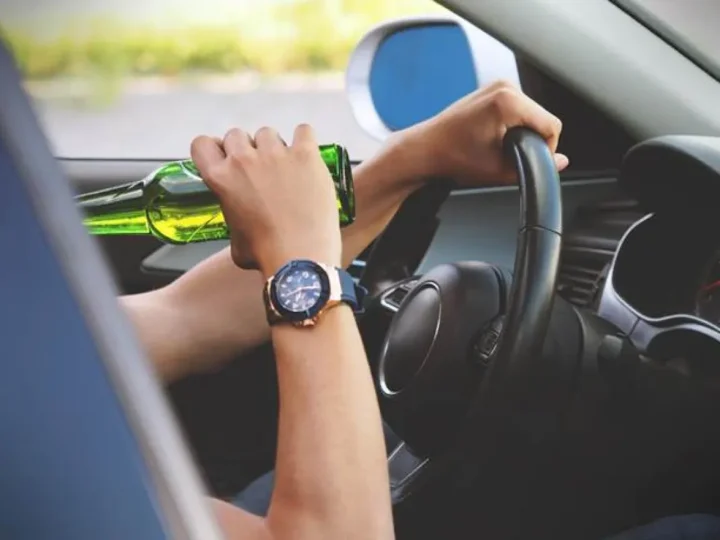4 Steps To Take When Facing A DWI Charge
Driving while intoxicated or impaired (DWI, also called DUI or driving under the influence) is not to be taken lightly. A driver impaired by alcohol or drugs—or both—endangers not only themselves but also other drivers and innocent bystanders.
If you’re faced with a DWI charge, the first step is to remain calm. As serious an offense as it may be, it can be contested and dropped with a combination of the right decisions, legal counsel, and legal defense strategy. Consider taking the following steps to defend against such a criminal offense:

1. Let A DWI Lawyer Help
Individuals can choose to defend themselves in court, but they must know that the court won’t give them special treatment. Regardless of relevant experience, the judge will hold them to the same standard as a lawyer. That means being familiar with (but isn’t limited to) the state’s DWI laws, court procedures, and—if necessary—when to take a plea bargain.
A failed defense leads to costly consequences, even for a first-time offender. For example, North Carolina punishes DWI offenders (BAC or blood alcohol concentration of >0.08% if using a private motor vehicle, >0.04% if using a commercial motor vehicle) via a five-level system. Here’s a summary from least to most severe.
| Level | Maximum Fine | Jail Sentence | Suspend Sentence* | Community Service | Driving Ban |
| V | USD$200 | 1 to 60 days | Yes | 24 hours | 30 days |
| IV | USD$500 | 2 to 120 days | Yes | 48 hours | 60 days |
| III | USD$1,000 | 3 to 180 days | Yes | 72 hours | 90 days |
| II | USD$2,000 | 7 days to 1 year | No | — | — |
| I | USD$4,000 | 30 days to 2 years | No | — | — |
Source: North Carolina Department of Public Safety
*After serving the minimum jail sentence in exchange for community service and a temporary driving ban
A DWI can stay in one’s record for a decade or, in some states, permanently. Such a stain can affect their chances of getting a job or applying for benefits, among others.
With so much at stake, it’s better to leave defending against a DWI charge to experienced criminal defense attorneys. Their job entails scrutinizing every detail, from details of the time of arrest to proof of actual impairment. You can learn more about how lawyers can help by visiting online resources like Raleigh DWI lawyer.
2. Keep Quiet

There’s no need to make a DWI charge worse than it already is. Unfortunately, saying or showing something that can be used against the offender in court is one way. Basically, that’s waiving one’s right to remain silent.
Lawyers cannot advise their clients enough to resist the urge to post information about their DWI charges on social media. Investigations aren’t just limited to the scene of the crime but also outside of it. Social media posts regarding one’s charge can be used as evidence, giving the prosecution more ammo to fire at the defense.
This lapse in sound judgment can also happen during a stop. While it’s generally advisable to cooperate with law enforcement officers, motorists can refuse to answer incriminating questions as per the Fifth Amendment. Considering that slurred speech is one of the signs of alcohol or drug impairment, keeping mum is a good idea.
Exceptions apply, such as providing license details. If you’re unsure about whether or not to share something, it pays to talk to a lawyer first. Giving the prosecution little to work with is a common defense strategy.
3. Differentiate DWI And DUI
“Wait, didn’t you just say DWI is also called DUI?”
The two are used interchangeably, and most states tend to use either term for consistency. That said, some states separate DWI and DUI. For example, Texas law states:
- DUI is reserved for offenders under the legal drinking age of 21 found with traces of alcohol, regardless of BAC. It’s classified as a Class C misdemeanor, but it can’t be expunged or removed from one’s criminal record.
- DWI is the standard charge for offenders of legal age and older found with a BAC of over 0.08% or lower than 0.08% if they show signs of impairment. It’s classified as a Class B misdemeanor but can escalate into a felony charge with repeat violations.
Six states—Indiana, Iowa, Maine, Massachusetts, Michigan, and Wisconsin—use the terms “operating under the influence of alcohol (OUI)” and “operating while intoxicated (OWI).” Other terms may include “operating while visibly impaired (OWVI)” and “driving with an unlawful alcohol concentration (DUAC).”
All these terms may sound alike, but defending against such charges is all about the fine details. There’s a chance that the prosecution filed the wrong charge, especially if in a state that differentiates DWI/OWI/OWVI and DUI/OUI/DUAC. The defense can argue to dismiss it or reverse a conviction.
4. Consider Alternative Sentencing
Trials are by no means the only way to resolve a DWI charge. If state law offers it and the individual meets specific criteria, they can seek alternative options that carry less severe consequences.
In Washington State, offenders can petition for a one-time deferred prosecution. Instead of a hefty fine and jail time, they can undergo substance use treatment arranged by the court at a state-certified provider. The treatment process can last two years, after which a clean record must be maintained over the next three years.
Another option is pretrial diversion, which lets DWI offenders avoid a conviction through a long-term program. It involves undergoing treatment, rendering community service, and submitting to monitoring. After completion, the criminal charge can be expunged. However, such programs are only eligible for low-risk DWI cases (i.e., first-timers, very low BAC).
Conclusion
The danger an intoxicated driver poses to the public is too great not to carry a grave consequence. That said, when you believe you don’t deserve that charge, you have a chance to argue that in court. Prepare a strong defense, starting by looking for an experienced criminal defense lawyer to assist you.


